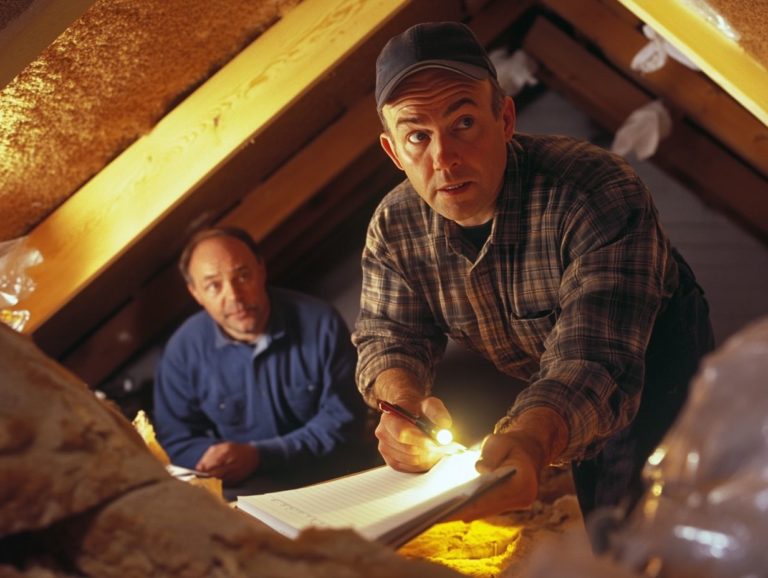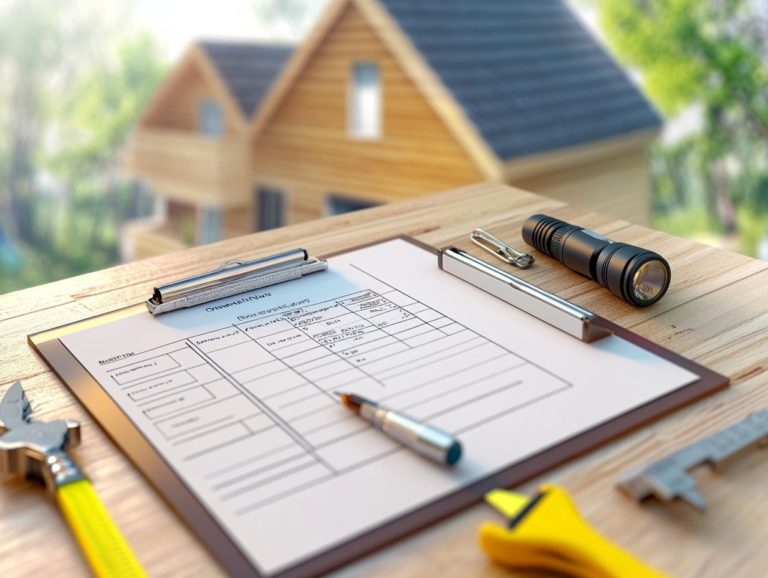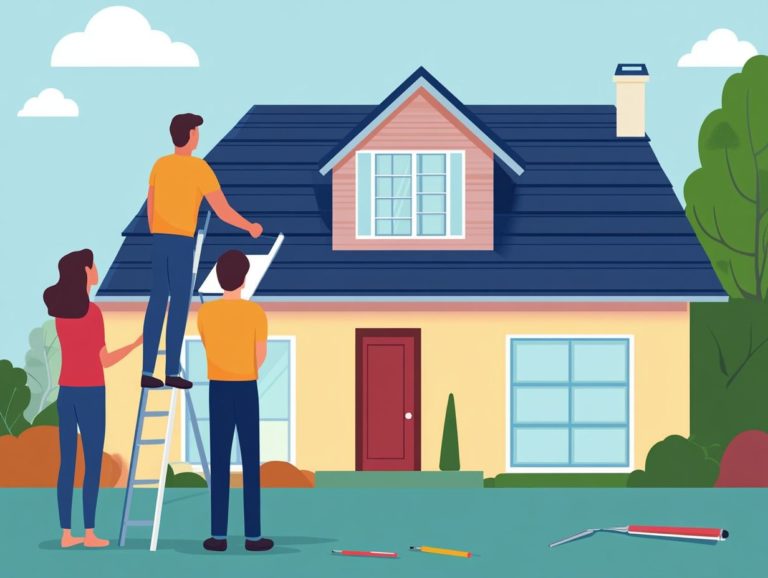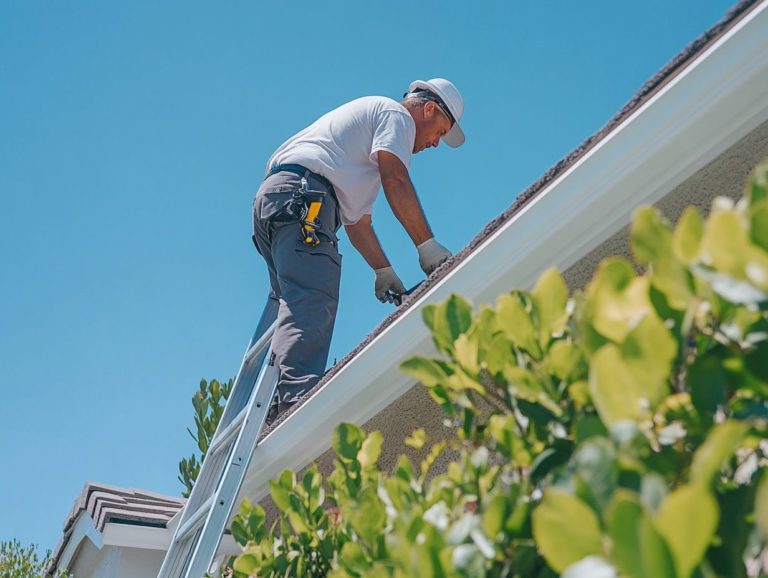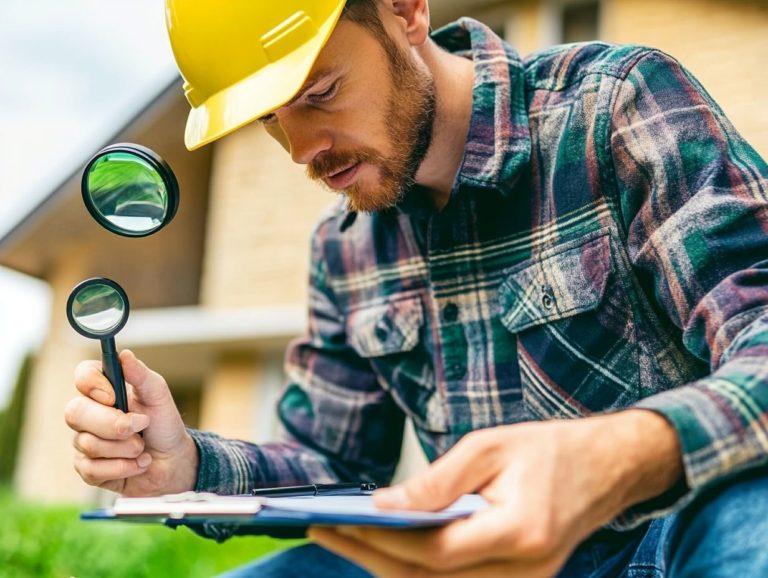Understanding the Necessity of Home Inspections
Navigating the world of real estate can feel overwhelming, whether you’re looking to buy or sell.
One essential step in this journey is the home inspection a detailed check-up that uncovers potential issues while providing you with peace of mind. This article breaks down what a home inspection involves, highlights its benefits, and clarifies when it becomes necessary.
You ll gain insights into what to expect during the inspection process and how to select a qualified inspector. By addressing any issues that arise, you’ll set the stage for a smoother transaction and a safer home.
Contents
Key Takeaways:
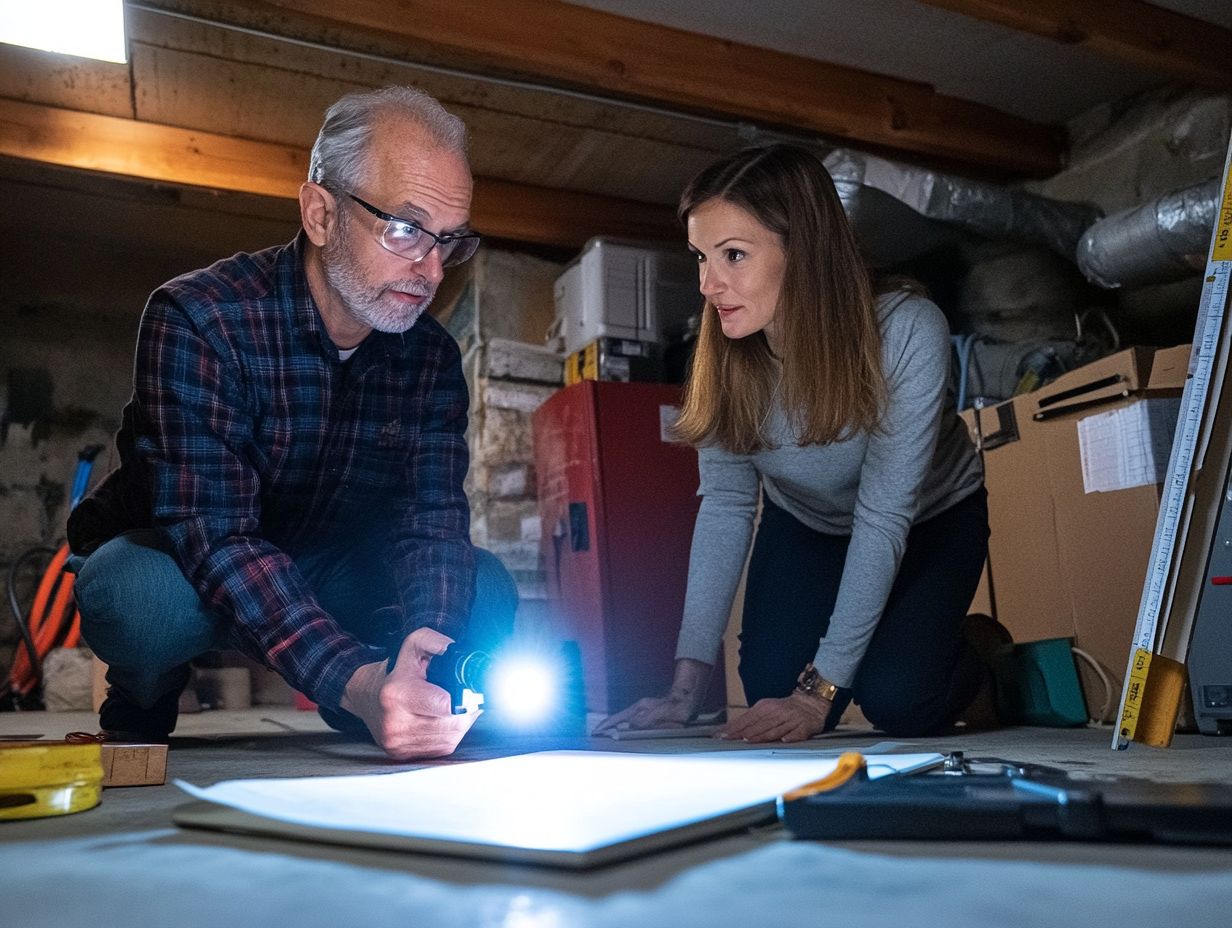
A home inspection is a detailed examination of a property’s condition, providing valuable information for buyers and sellers. Understanding the process of home inspections helps identify potential issues, giving peace of mind and the opportunity to address concerns before finalizing a transaction. They are necessary during real estate transactions and for regular maintenance, making it crucial to choose a qualified home inspector.
What is a Home Inspection?
A home inspection serves as a detailed evaluation of a property’s physical structure, typically carried out by a certified home inspector. It focuses on finding safety issues that could impact the property’s value and integrity.
The process involves a meticulous examination of various systems and components, such as electrical, plumbing, roofing, and the foundation. The goal is to provide you with a comprehensive home inspection report outlining the overall condition of the house.
For emotionally invested buyers and sellers, understanding potential repairs needed can shape their selling decisions.
Benefits of Home Inspections
Home inspections offer much more than just compliance; they are essential in uncovering potential issues within a property.
This proactive approach offers peace of mind for both buyers and sellers during the real estate transaction process.
Identifying Potential Issues
One of the most significant advantages of a home inspection is its ability to uncover issues, such as structural problems, drainage concerns, electrical faults, plumbing issues, and roof troubles, before they escalate into costly repairs.
These findings are crucial in your buying journey, as overlooked problems can compromise occupant safety and diminish the property’s overall market value.
For instance, significant structural damage could pose serious safety risks and deter potential buyers. Faulty electrical wiring creates safety hazards and may increase insurance premiums. Unresolved plumbing issues can lead to severe water damage, resulting in extensive renovations.
By addressing these problems upfront, you gain peace of mind and enhance your position for negotiating a fair price during the sale.
Peace of Mind for Buyers and Sellers
Home inspections give you peace of mind, whether you’re buying or selling a property. They create a transparent environment where buyers can feel secure in their purchasing decisions, while sellers can confidently showcase their homes.
This crucial step alleviates anxiety as you navigate the often daunting world of real estate and helps bridge the trust gap between both parties.
When you, as a buyer, understand a home’s condition through thorough inspections, you’re better equipped to make informed choices, knowing potential issues have been identified and addressed. For more insights, discover the benefits of a home inspection. This reassurance fosters a sense of protection, allowing for smoother negotiations.
Meanwhile, sellers can take pride in offering a property that has been vetted for quality, enhancing their credibility. The home inspection process lays the groundwork for a collaborative relationship, reducing fears and enabling a more positive experience for everyone involved.
When is a Home Inspection Necessary?
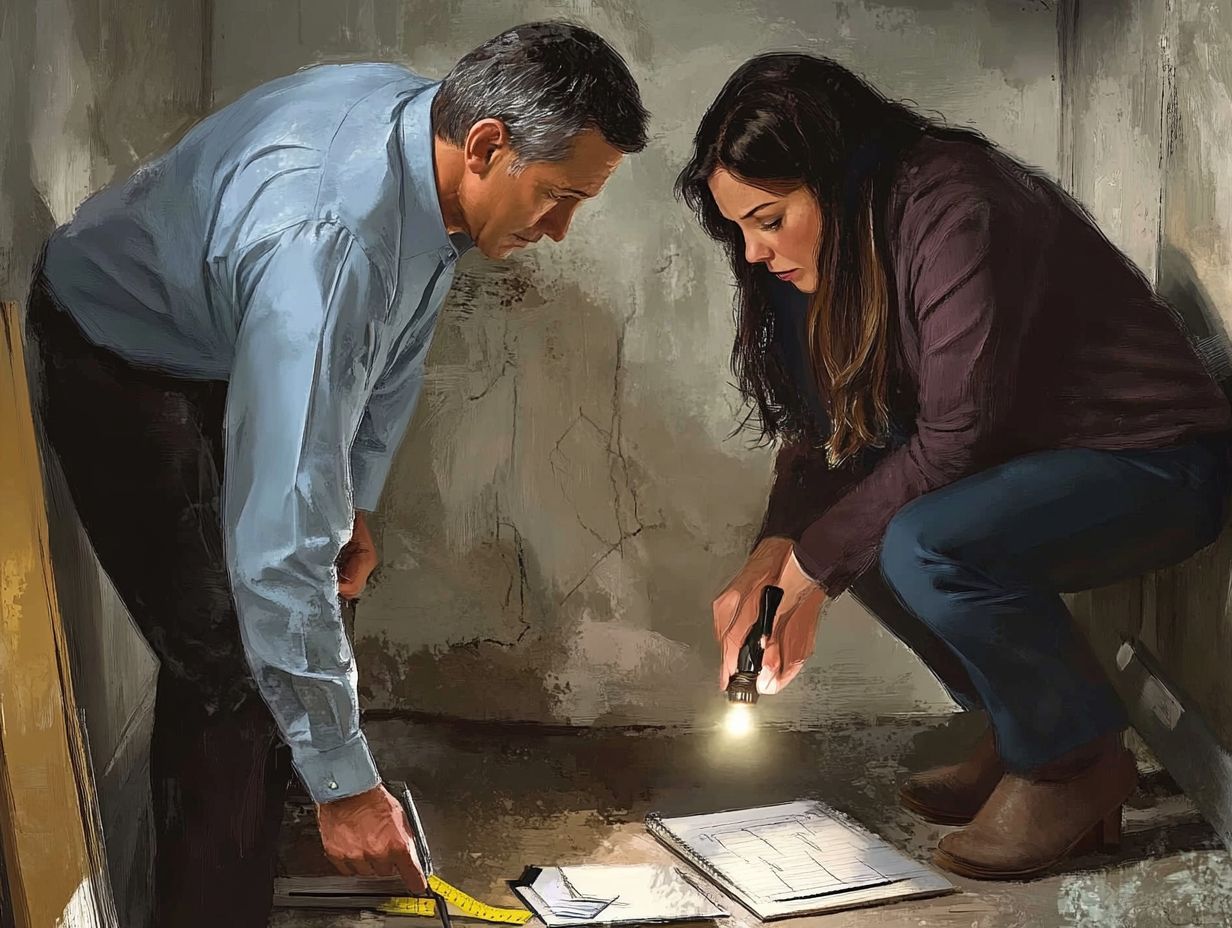
A home inspection is a must during key moments in your buying journey, especially during real estate transactions.
They also help with regular maintenance, ensuring your property remains in peak condition and compliant with current codes.
Real Estate Transactions
In real estate transactions, a home inspection is not just a formality; it’s an essential step that gives you important insights, protecting you from unexpected issues. Understanding the role of home inspectors can further safeguard your investment.
This step is crucial don’t skip it! It becomes even more critical in unique situations, such as the sale of foreclosed properties, where previous neglect may be hiding significant damage. Without this crucial inspection, you could find yourself facing unexpected and costly repairs.
Similarly, properties situated in flood zones require thorough checks, as hidden water damage can have long-lasting effects that threaten your financial stability.
By conducting thorough inspections, real estate agents empower you to navigate these complexities with confidence. They help ensure that you make informed decisions that not only protect your interests but also elevate the overall experience of the transaction.
Regular Maintenance
Regular maintenance inspections are essential for you as a homeowner, enabling you to proactively identify potential repairs and extend the lifespan of your property. Think of these inspections as your safety net, allowing you to catch issues before they escalate into costly repairs.
By scheduling routine evaluations, you can spot early signs of pests, mold growth, or even structural weaknesses, preventing them from turning into significant problems.
Recognizing the critical importance of these assessments not only helps preserve the value of your home but also provides you with peace of mind.
With a systematic inspection routine in place, you can protect yourself against the unexpected, ultimately enhancing the safety and longevity of your home while fostering a healthy living environment.
What to Expect During a Home Inspection
During a home inspection, you can anticipate a thorough examination of various systems within the property. This process ends with a detailed inspection report that outlines findings and recommendations.
Typically, this inspection takes a few hours, depending on the size and condition of the property.
The Process and Timeline
The home inspection process typically unfolds over a few hours and involves a thorough check of key areas such as HVAC systems, plumbing, roofing, and electrical setups. This leads to a helpful report that serves as a vital resource for both buyers and sellers.
During the inspection, various phases are executed with precision, starting with an extensive exterior assessment of the foundation, siding, and landscaping. This initial phase provides critical insights into the home’s structural integrity.
Next, each plumbing fixture and the entire electrical layout are scrutinized to ensure both functionality and safety.
After approximately three to four hours, the inspector compiles their findings into a detailed report that outlines any deficiencies and recommends necessary repairs. Buyers often rely on this document to make informed decisions, weighing potential negotiation leverage against any serious issues uncovered during the inspection issues that could significantly impact their offer.
Choosing a Qualified Home Inspector
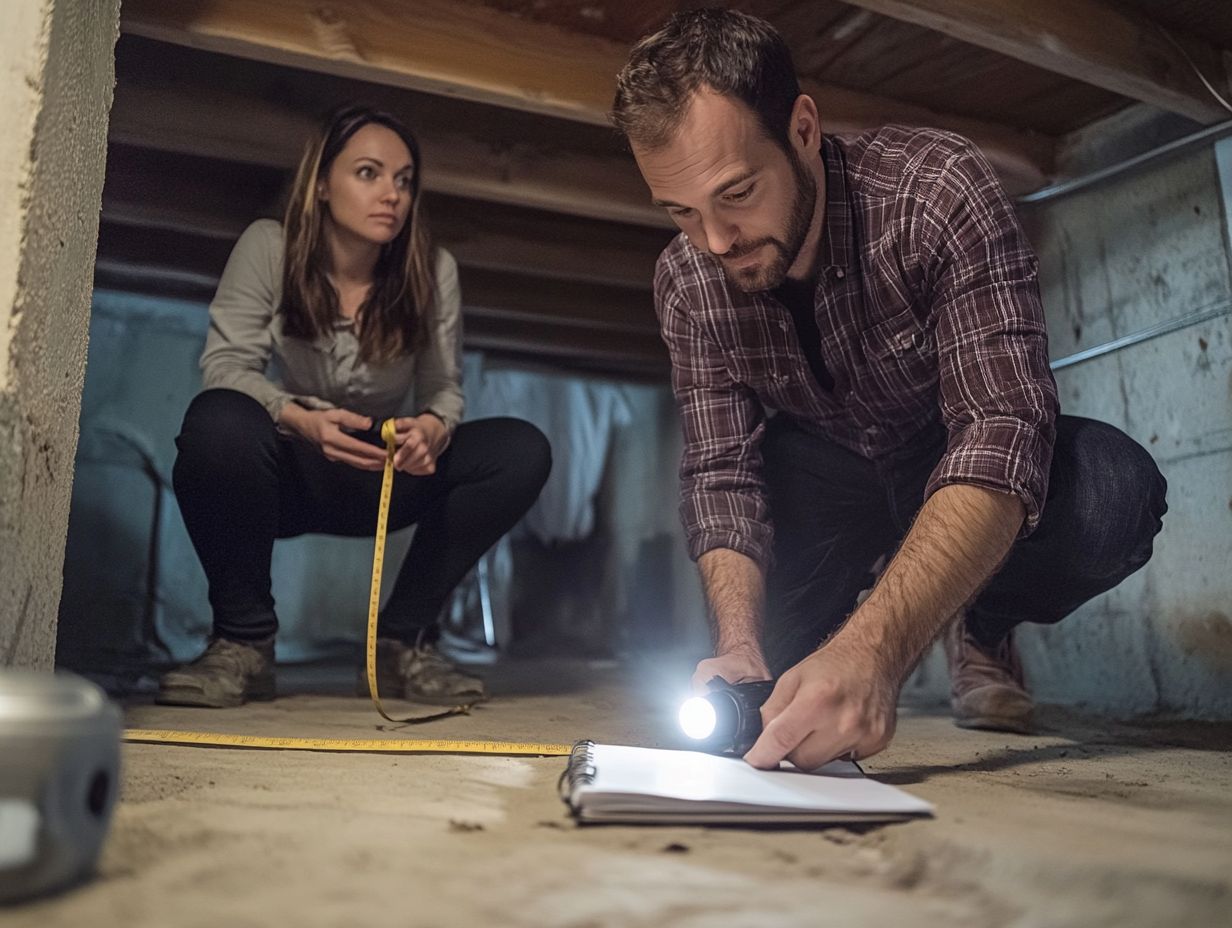
Choosing a qualified home inspector is crucial for securing a comprehensive evaluation of your property. It’s wise to seek out inspectors certified by respected organizations like the American Society of Home Inspectors (ASHI). This means you ll get a reliable assessment, giving you peace of mind in your investment.
Important Factors to Consider
When selecting a home inspector, consider their qualifications, experience, and any certifications they hold. These elements can significantly influence the reliability of the inspection.
Reviews from previous clients can provide invaluable insights into their professionalism and attention to detail. Seek references to gain a better understanding of the inspector’s track record and any specific strengths they may possess.
It s equally crucial to assess their approach to inspections. A thorough and methodical evaluation can uncover potential issues that may lead to costly repairs down the line.
When investing in a home, making an informed choice by considering all these aspects will empower you to feel more confident in your purchase decision.
Ready to protect your investment? Schedule your home inspection today!
Addressing Issues Found in a Home Inspection
Addressing issues uncovered during a home inspection is essential for both buyers and sellers. These findings often dictate the subsequent steps in the transaction process and may necessitate negotiations regarding potential repairs outlined in the home inspection report.
Ensuring that these concerns are resolved can pave the way for a smoother and more successful transaction.
Options for Resolving Problems
When you identify issues in a home inspection report, you have several avenues for resolution. You can negotiate repairs with the seller or enlist contractors for immediate fixes. Effectively addressing the findings calls for a thoughtful strategy.
Start by discussing the necessary repairs and their urgency with the seller. You may incorporate terms in the sales contract that clarify who will take care of specific issues. This could involve some price negotiations, where you request a reduction reflecting the estimated costs of repairs. This enhances the overall financial viability of your purchase.
Contingency clauses are invaluable. They let you back out of the deal if serious problems arise. By employing these strategies, you can expertly navigate the risks associated with unresolved inspection problems.
Frequently Asked Questions
Here are some common questions about home inspections.
What is the purpose of a home inspection?
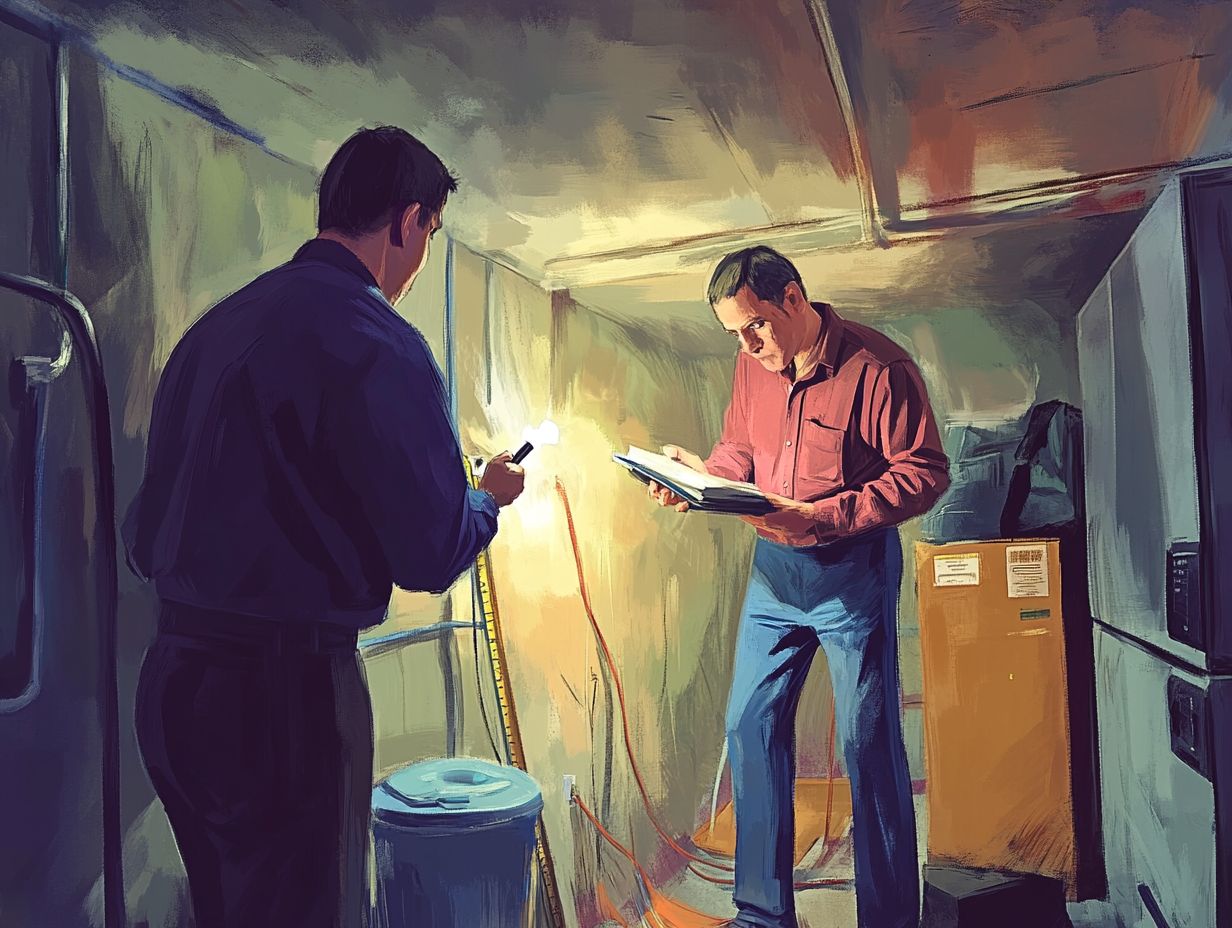
A home inspection is a thorough examination of the condition of a property, covering its structure, systems, and components. Its purpose is to identify potential issues or damages that may affect the value, safety, and livability of the home.
Why is it important to understand the necessity of home inspections?
Understanding the necessity of home inspections is crucial. It helps buyers and sellers make informed decisions about the property. Additionally, it ensures that the home is safe and adheres to building standards and codes.
When should a home inspection be done?
A home inspection should be completed before purchasing a home to avoid surprises or unforeseen costs. Get a home inspection every few years to catch issues early and save money!
Who should be present during a home inspection?
Typically, the home inspector and the buyer should be present during the inspection. The seller and their real estate agent may also attend, but their role is mainly to provide access and answer any questions the buyer may have.
What is included in a home inspection report?
A home inspection report includes a detailed description of the home’s condition. It covers its structure, interior and exterior components, and major systems like plumbing, electrical, and HVAC. It highlights potential issues and provides recommendations for repairs or further evaluation.
Can a home inspection affect the sale of a property?
Absolutely! A home inspection can significantly impact the sale of a property. If significant issues are discovered during the inspection, it can influence negotiations between the buyer and seller. However, it also provides an opportunity for the seller to make necessary repairs or for the buyer to negotiate a lower price.

